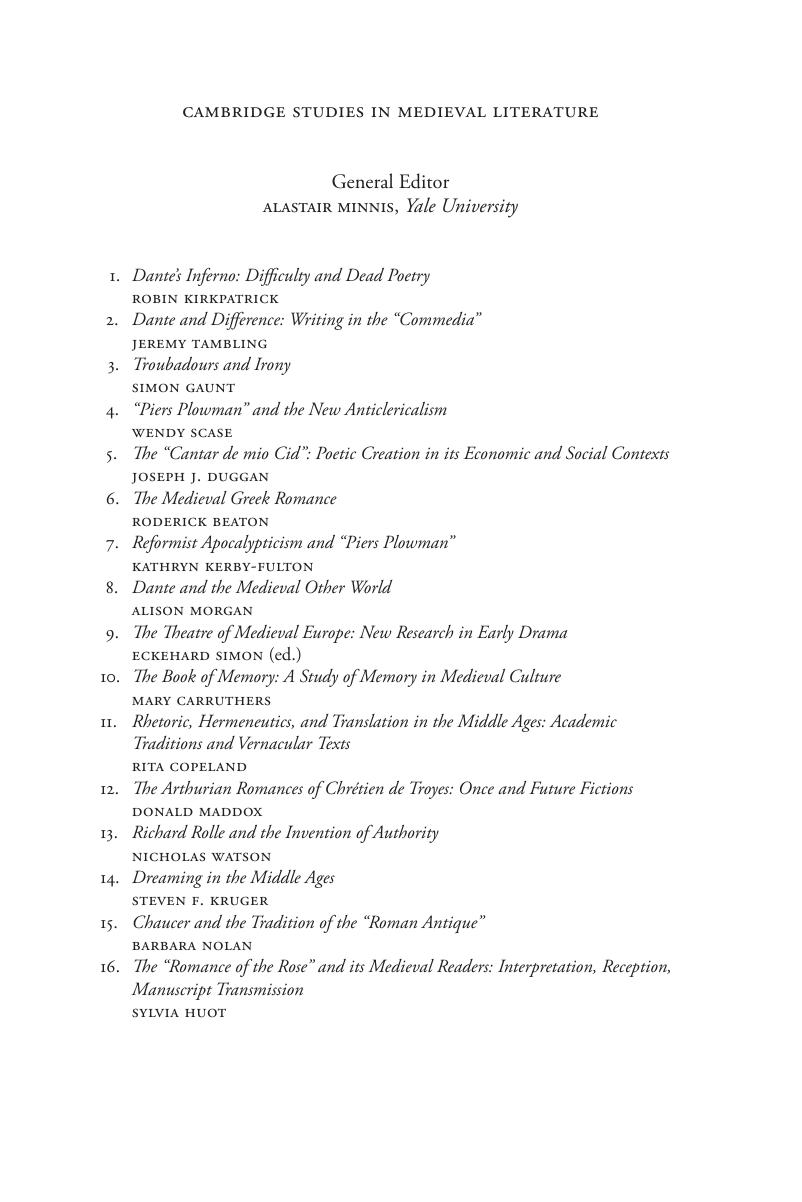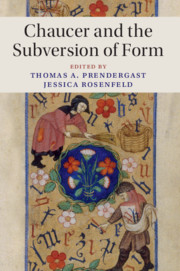Book contents
- Chaucer and the Subversion of Form
- Cambridge Studies in Medieval Literature
- Chaucer and the Subversion of Form
- Copyright page
- Contents
- Contributors
- Acknowledgments
- Introduction
- Part I The Failures of Form
- Part II The Corporeality of Form
- Part III The Forms of Reception
- Bibliography
- Index
- Cambridge Studies in Medieval Literature
- References
Cambridge Studies in Medieval Literature
Published online by Cambridge University Press: 16 May 2018
- Chaucer and the Subversion of Form
- Cambridge Studies in Medieval Literature
- Chaucer and the Subversion of Form
- Copyright page
- Contents
- Contributors
- Acknowledgments
- Introduction
- Part I The Failures of Form
- Part II The Corporeality of Form
- Part III The Forms of Reception
- Bibliography
- Index
- Cambridge Studies in Medieval Literature
- References
Summary

- Type
- Chapter
- Information
- Chaucer and the Subversion of Form , pp. 225 - 230Publisher: Cambridge University PressPrint publication year: 2018

